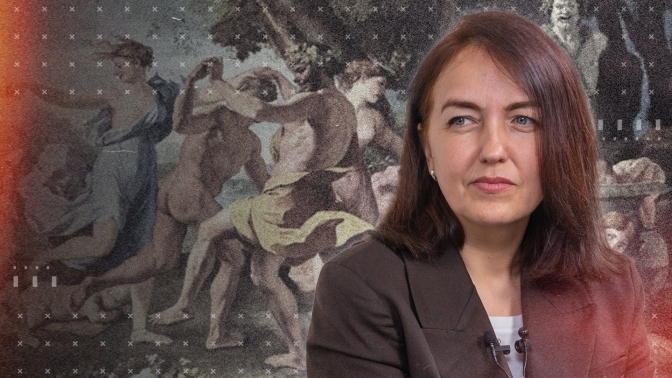
The war, its impact and what will happen after it
How long will the psyche be able to function normally, can people be effective in conditions of constant threat?
The human psyche adapts. We have the example of Israel, which has been at war for 70 years. For this, they have a system of military service and education. I think this is Ukraine’s perspective. I once heard from someone that Ukrainians must realize that this guilt will last for a long time, and that they should live preparing for it from an early age, have military departments, understand what to do, or simply leave Ukraine.
Are today’s children, schoolchildren, and students adapting to the war? Will it become a trauma for them?
Their psyche is more plastic, so they adapt faster, survive and find even more resources in this situation. It is worst for people who are over 60 years old. And even 40-year-olds find it difficult to accept this, because they have already worked hard, achieved something, and suddenly it fell apart, and they have to start over. This is trauma.
You should not worry about children, although everyone adapts differently here. Instead, it is worth worrying about the fact that everyone will leave here. One of the great dangers is that this territory will be wasteland, there will be no population.
Not everyone will return, but someone will come or want to become a Ukrainian. However, for this it is necessary to create the conditions, to show that there are huge opportunities for self-realization.
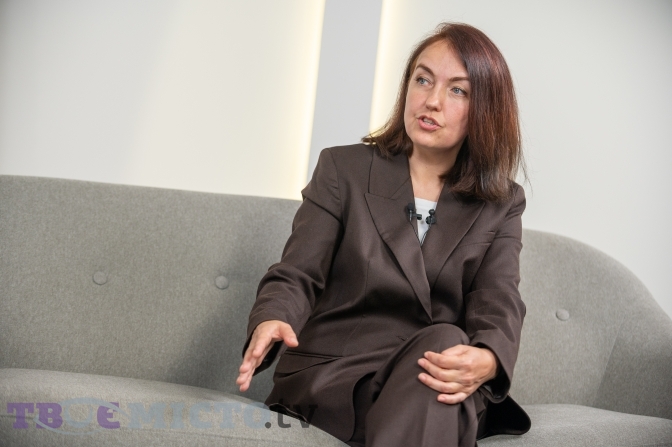
It is worth looking more broadly, because not only Ukrainians will go here, but also representatives of other nationalities. Kazakhs, Uzbeks, Tatars can come to us, Ukraine can become multicultural.
Georgians, Armenians, Azerbaijanis have been coming here for a long time.
People will come here and see our culture, what we’ve been able to do, and they’ll want to be a part of this area. This can cause great challenges for Ukrainians. We must be ready to become part of the global world. If we want to be the number one country, we have to prepare for the arrival of migrants.
Identification and self-identification
How to ensure the Ukrainian-speaking, Ukrainian-centric Ukrainians that their national identity will not be threatened?
One of the mandatory components of the government’s policy should be the Ukrainian language. This is a feature that will distinguish us. If we don’t have the Ukrainian language, we won’t have anything different from Russians. We can have the illusion that we differ from them in terms of value. But when we come abroad and speak Russian, no one says that we are Ukrainians. This is one of the key phenomenal things that will unite representatives of all other nationalities living in Ukraine.
People with Soviet experience who have been in Tallinn understand that the Russian-speaking and Estonian communities are very segregated, often not intersecting at all. This is also a certain risk.
Yes, it’s a risk. But in our case, the language will unite. And a person who is Kazakh by origin will be able to be Ukrainian. We have an example of a Jewish president who did not strongly identify with Ukraine, but he is Ukrainian and Jewish.
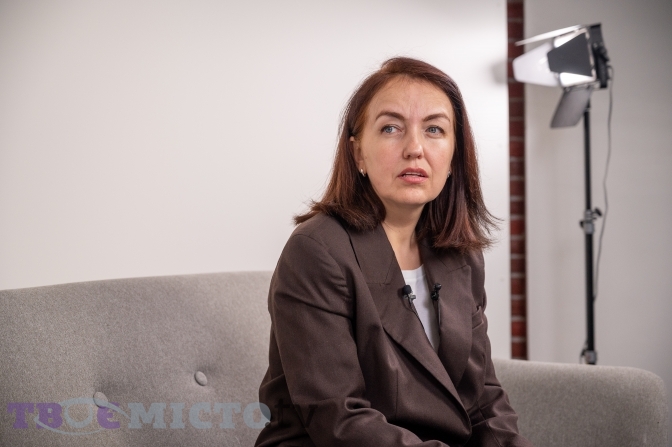
He is mentioning it now. Recently, an article was published in an Israeli magazine, stating that Zelenskyi is the most famous Jew in the world.
It is obvious. But it seems to me that at the time of his election, he had more of a Soviet or post-Soviet identity.
Our country is no longer ethnically monolithic. And if there is no unifying factor, Ukraine may not exist as a state, it may fall apart again. There are also many nationalities in America, but they are united by a language and a certain culture.
Anglo-Saxon, largely Protestant. And which one is suitable for Ukraine? Probably Ukrainian.
Yes, if it dominates and if we are not ashamed of it. We had a lot of shame because we were Ukrainians, we were ashamed to speak Ukrainian. Now, a lot of bloggers are switching to it, and they report this transition with such pathos, they claim that their grandparents also spoke Ukrainian. At such moments, I think: why did you then switch to Russian?
Because there was a deep feeling that Ukrainian is something rural. And now we saw that Russianness is something in people who are used to rinsing things once a month in the river, and we wonder why we were ashamed.
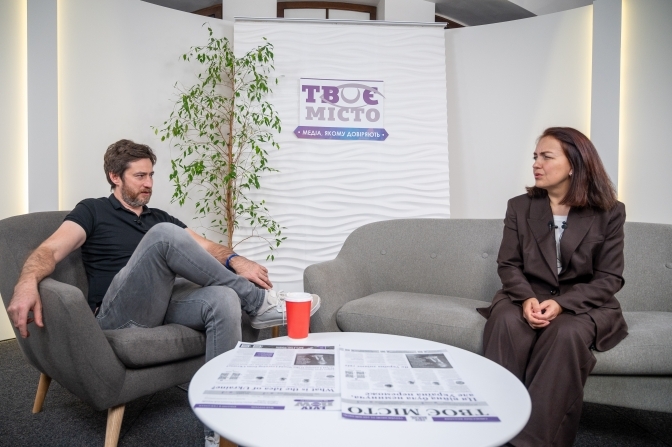
This was imposed on us by the imperial culture, which had nothing of its own, it only took the best from others. In fact, the question now arises: who are the Russians? We see riots and rallies against mobilization in Dagestan. Whether Dagestanis or representatives of other cultures consider themselves Russians is a big question. So who are the Russians then? Only residents of Moscow and St. Petersburg? This is a question for them. They cover the void of identity with aggressive motives, because they do not know who they are. There are conditional elites in the two aforementioned cities, but there are almost no pure Russians – many people have come there. And they have to accept that it’s a multicultural state. This will also be a challenge for them. And I think this is one of the right directions that they should realize. After all, just like us, because being Ukrainian does not mean being an ethnic Ukrainian. Crimean Tatars are an example of this. It is necessary to make it fashionable and prestigious to be Ukrainian, but there must be some markers to indicate our place in the world. And one of them is language. You have to look for others.
How to determine values
Before the war, a survey of 14-18-year-olds was conducted in Kyiv, and its results were made public recently. They were asked the so-called marker questions according to Lefebvre [the Soviet-American mathematician and psychologist of the University of California, the author of the theory of the existence of two ethical systems defining Western and Eastern societies. In the first, a compromise between good and evil is considered evil, and confrontation is considered good. In the second, it is the opposite] Many of the respondents answered in the Soviet way. Why so?
I have already thought about this, because I often analyze sociological studies: every year, they conduct studies related to values. According to their results, we were always somewhere «near» Russia. But the war showed that we are not very similar. So I have a question about the methodology of these surveys. I will turn to the book of Anna Arendt, who wrote about the banality of evil. It describes the story of the trial of a German, who was a logistician responsible for exterminating Jews. When he was asked about such things, he answered with phrases that were very surprising. The author realized that he voiced clichés inherent in his society, which sometimes had nothing to do with emotional values and feelings. I have a question: how to determine true values methodologically?
That is, we can say that these are false answers?
Yes. It’s a cliché. People were taught this way by school, they grew up in this system and will act this way. But if something touches them emotionally, will they act that way or differently? That’s the question. But we cannot determine this by any methods.
And it works both ways. A person can say «I need an authoritarian hand», and as soon as it appears, the Russian says «well, I go to die in the Kharkiv region», and the Ukrainian wonders what is going on, because he did not vote for it.
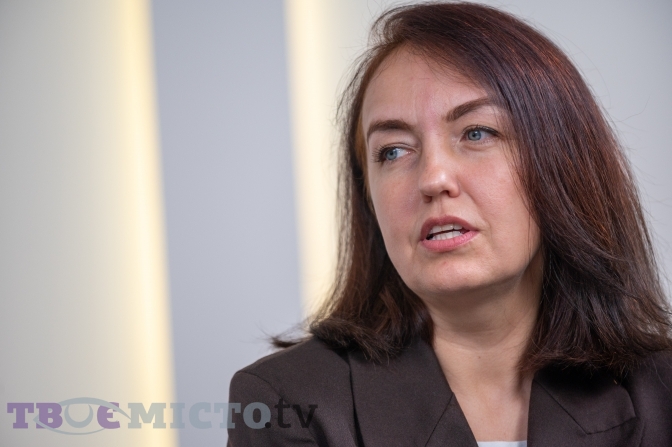
That is, does the person’s declaration correspond to the behavior that he will demonstrate? She will still use clichés. Americans also give clichéd answers because they were taught that way in school. That is, it’s more about clichés, about the correct answers that exist in our society, not about deep values.
But Ukrainian families are very different from Russian families in their values.
I think so. This is demonstrated even by the prisoners of war calling to their parents in Russia, cases that caused a strong resonance in Ukrainian society. When mom or dad talks to their son, there is no respect, no empathy, no love. Parents and children perceive each other simply as they are. We felt a deep gulf between our families and theirs.
At times, it seemed that aliens were calling each other...
Thanks to such conversations, you can check the true values. We compare several such cases and see that we are completely different. This way, you can better understand who we are. We have never had the opportunity to appreciate the family values of Russians. And it turns out that there is no family as such, everyone there is indifferent to each other. The main value of Russian society is indifference. They have no emotional involvement, no passion for anything. And Ukrainians are more emotional, more passionate. If we like something, we will do it, and if not, we will hate it on social networks. People often ask: why do we have so much hate on social networks? And I like the hate because it shows our passion, we say how good we feel and how bad we feel. If it disappears, I will be afraid, because indifference, like among the Russians, is scary.
After joining the European Union, Poles are sometimes called Slavic Germans. What will we be called after Ukraine joins the EU?
Probably, Eastern Italians or Spaniards, because we are somehow similar to them, although I don’t know how. Probably, again, with emotionality and passion. This can also be seen in our politics. We are not a «cold» nation, although it seems to us that we should be «correct» like Germans or Poles. But we are not like that, we will continue to hate, express ourselves, because this is the structure of our identity, what it means to be Ukrainian. Now, we are investigating ourselves, and this is a very interesting phenomenon.
«Russian world» and its consequences
I can’t get rid of the feeling that the Russians, having a little more money and freedom, have degraded so much in 30 years. They used their freedom to make terrible movies and produce terry pop songs.
This is an interesting phenomenon. Before the war, many of us did not think about the extent to which Russian society had degraded. We still looked at it, wanted to get there, because they have more money.
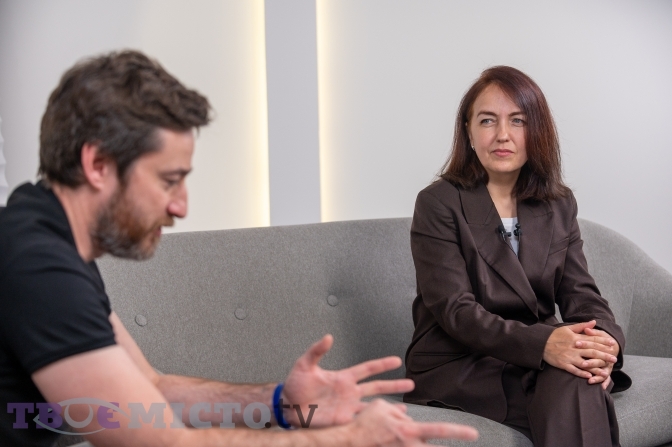
The war revealed to us the picture of Russian moral and value degradation. They have no spiritual values and do not understand the price of human life. The main values of Russian culture are power and money, which they put first and which are now produced by one power structure – Vladimir Putin. He declares machismo, wishing an unlimited power. And there are also many people who have money, a separate clique that pays others to make them do what it wants.
This value gap was created because there is impunity in Russia. When our president or Arestovych starts saying something wrong – they meet criticism, and thus prefer to model their speeches. In Russia, it doesn’t work this way: although Putin is criticized, he does not react to it anyway. And this impunity leads to the following: what he dictates, he considers to be the only correct and the only valuable idea. If a person, like Putin, has no other moral norms and authorities, as Boris Nemtsov said earlier, then his personal values are extrapolated to the values of Russians. This is how he managed to create this degrading system in which Russians must follow orders, because otherwise, they merely won’t survive. It’s scary, but we’ve only seen it now.
But not only Putin was its «architect», he responded to public demand.
This is because the Russians never had a democracy. There always was a tsar who dictated the terms, and no one had the right to contradict him. We recently argued about this with students. They told me that for 300 years, there was nothing in Ukraine, not even serfdom, so why do the rest of us have a call to freedom?
But Ukraine was never an integral state, it did not have its own monarch. There was always a protest mood. We did not like the government, not even our own. We never considered the government to be ours, it was like a foreign body, an invader. That is why so much anger and hatred is directed towards the authorities. Only now do we realize that we have our own government that takes care of our interests, and it’s like a miracle, because such a thing cannot happen. We cannot understand in any way whether the president really supports Ukraine.

Because of this, we hated government and weren’t influenced much by its values. At the same time, the Russians have the opposite: it is their tsar, their Putin, so he does everything right. Judging by what they write in Telegram channels, they even imitate him. It’s scary, such a totalitarian structure – identity with the leader.
In 1939 and 1944-45, the Soviet government came here and received many estates, monuments, castles of the Lviv region, which in 70 years turned into stables, warehouses, and dispensaries. Everything has fallen. The Russians are doing the same now in the captured Ukrainian territories. Ukrainians, however, in the first days after the liberation of Izyum, began to restore services and repair everything under the continuing shelling. It is also about cheerfulness, the desire to bring order or bring chaos.
It’s interesting to see how the Ukrainians quickly restore everything. We always had the ability to be entrepreneurs, but we didn’t think we should do it. I was taught at school that this was unacceptable, a disaster. Therefore, I probably lived with the fact that having my own business or selling something was bad. It’s good that children are not taught like that now, so they do something and can, for example, pick mushrooms in the forest and sell them.
In Russia, this Soviet culture still works. There are a lot of people who have money, but they once earned it dishonestly. That is why entrepreneurs leave there – they are not allowed to do anything. In Russia, the Soviet system remained, oligarchs close to Putin have money, permission to steal and thus enrich themselves. All plants, factories, enterprises are theirs. They are ineffective, there is no market there – only a monopoly, so Russia does not produce anything. There is no middle class. We have oligarchs who steal, although it’s only several of them. And there is a middle class that’s rising thanks to entrepreneurship, and I think that with its help, Ukraine is starting to come alive.
Can we say that Ukrainians are becoming closer to Europeans? Are we Europeans?
We are already the ones. War brings terrible devastation, but it also stimulates other processes. Many factories and businesses in the east of the country, which supplied raw materials to the West, collapsed. Many enterprises stopped due to this, because there are no raw materials, but they quickly reoriented themselves in order to survive. All business processes have already been integrated, whether we like it or not, because there is nowhere else to get raw materials. Thus, we will be automatically integrated into the EU system in some time. Also, we are already integrated into the European education system: half of the students have gone abroad and will study there.
Translated by Vitalii Holich
Follow us on Facebook and Instagram. Lviv Now is an English-language website for Lviv, Ukraine’s «tech-friendly cultural hub.» It is produced by Tvoe Misto («Your City») media-hub, which also hosts regular problem-solving public forums to benefit the city and its people.










